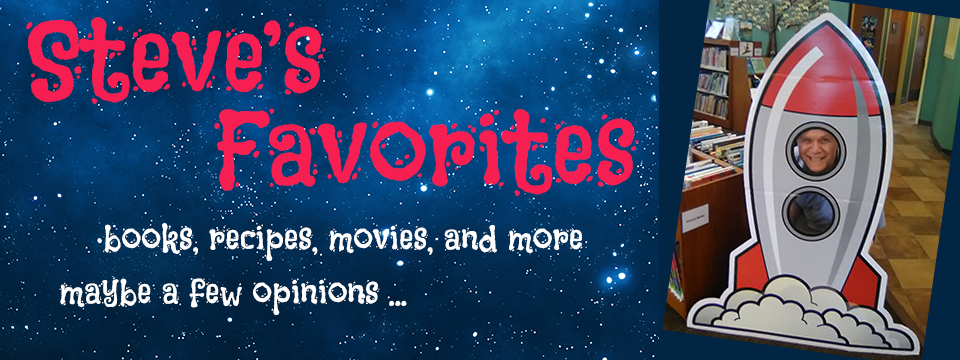|
|
|
|
|
| Recommended Reading |
|
| I really appreciate everyone's support during this health challenge. I thought you might enjoy some of my favorites as a way to say “thanks”! I'll be adding more content as my health allows. |
| |
| Week Nine: |
|
A History of Private Life: From Pagan Rome to Byzantium
Edited by Paul Veyne, Translated by Arthur Goldhammer |
|
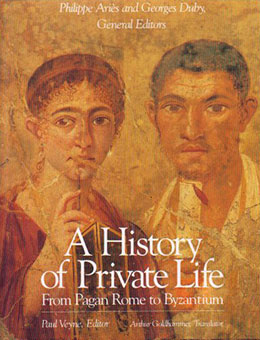 Lest you think I only read science fiction and the odd metaphysical book, I’d like to share a title from a series that I enjoyed (ahem!) in the last century. Lest you think I only read science fiction and the odd metaphysical book, I’d like to share a title from a series that I enjoyed (ahem!) in the last century.
A History of Private Life is a fascinating glimpse into what personal life was like in various historical periods (series list below). The first volume looks at pagan Rome to Byzantium. I suppose this is what we once referred to as “classical” culture. I’m pulling this off my dusty shelves to re-read this winter. I’m wondering if it will hold up against the recent re-examination of history our current culture is struggling with—in particular, how does it address the effects and consequences of a dominant culture enslaving others?
For anyone writing historical stories (or pursuing practical time travel), reference works like this series can provide valuable insights that might normally escape our modern sensibilities.
Now, if you’ll excuse me, I’m going to open up book one and immerse myself in ancient Rome.
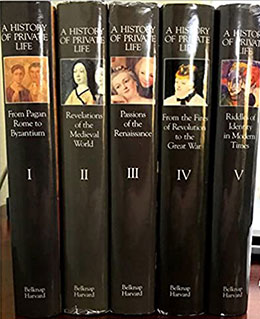 From the back cover: From the back cover:
“…intended for any reader who wonders how people lived and behaved in earlier times—their thoughts, their feelings, their bodies, their attitudes, their habits and habitations, their codes, their marks, and their signs.”
A History of Private Life series
- From Pagan Rome to Byzantium
- From Feudal Europe to the Renaissance
- From the Renaissance to the Enlightenment
- From the French Revolution to the Great War
- From the First World War to Our Times.
|
|
|
|
| Week Seven: |
|
The Wheel of Time series
by Robert Jordan (final three novels co-authored by Brian Sanderson) |
|
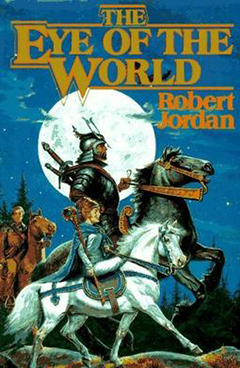 This recommendation isn’t a single book or several books, like the “Foundation” series. It’s a 14-book series! Although I’m not wishing for a snowstorm at this point in the season, having what seems like a never-ending story can be just the ticket to get you through a blizzard. This recommendation isn’t a single book or several books, like the “Foundation” series. It’s a 14-book series! Although I’m not wishing for a snowstorm at this point in the season, having what seems like a never-ending story can be just the ticket to get you through a blizzard.
Although I love tucking into a good sci-fi space opera, I also enjoy well-crafted fantasies with great characters, like “The Wheel of Time.” The series took so long to write that the author died before completing it. Fortunately, author Robert Jordan left enough notes for Brian Sanderson to co-author the remaining three books.
During the 1990s, I remember going into Barnes & Noble and anxiously looking for the latest edition of this series. I’m ashamed to admit that I stopped looking for the subsequent books after book #10 (Crossroads of Twilight) but recently ventured back into the pool and finished the rest of the books … even the prequel. It was worth the wait.
And get this! Just like the “Foundation” series, “Wheel of Time” is going to be a TV series. It premieres November 19 on Amazon Prime Video. I shudder to think what liberties will have to be taken with the story to get it to fit within a TV series format, but I’m willing to give it shot … but maybe wait and watch it during the next blizzard!
The book image is for the original first book, The Eye of the World. |
|
|
|
| Week Six: |
|
The Joy of Pizza: Everything You Need to Know
by Dan Richer with Katie Parla |
|
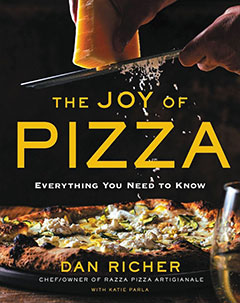 This book recommendation is a deviation from my other recommendations—this is a new book … not one I’ve read, but one I want to. Perhaps the appeal is unrequited pizza dinners, because I shouldn’t really be eating pizza while I’m in treatment, making the visuals of different kinds of pizzas all the more alluring. You can look inside the book. This book recommendation is a deviation from my other recommendations—this is a new book … not one I’ve read, but one I want to. Perhaps the appeal is unrequited pizza dinners, because I shouldn’t really be eating pizza while I’m in treatment, making the visuals of different kinds of pizzas all the more alluring. You can look inside the book.
I have long harbored a desire to have a workable pizza dough recipe and technique. Like many of you, I don’t have a pizza oven, but I was happy to read that the author addresses how to get good results in a conventional oven. As soon as I can, I’m going to be raising and punching down pizza dough and experimenting with toppings. In the meantime, I’d love to hear your choices for favorite pizza toppings to try.
Yesterday evening, we were Zooming with a friend and reminiscing about going to Shakey’s Pizza Parlour when we were kids. We didn’t know each other back then but it’s entirely possible we were all at the Bloomington location at the same time, sitting at one of the long run of conjoined tables, eating pizza, and singing along to the tunes played by a live piano player. Back then, Shakey’s resembled a beer hall—mainly what I remember is that it seemed like an endless cavern of noise and beautiful pizza aroma, and I wanted an evening there to go on forever. |
|
|
|
| Week Five: |
|
Stranger in a Strange Land
by Robert Heinlein,
G.P. Putnam's Sons, 1961 |
|
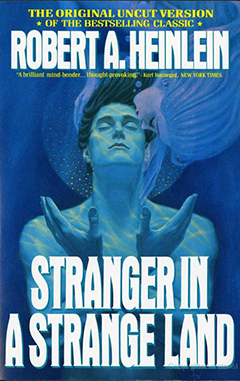 I enjoyed a lot of Heinlein’s stories in my early and mid-teens. This book is the one I remember the best. It became a kind of cult classic when it first came out…and I can see why. Many aspects of the story fit the era of the 1960s and early 70s very well. Do you remember the term “grok”? This story is where it came from. I enjoyed a lot of Heinlein’s stories in my early and mid-teens. This book is the one I remember the best. It became a kind of cult classic when it first came out…and I can see why. Many aspects of the story fit the era of the 1960s and early 70s very well. Do you remember the term “grok”? This story is where it came from.
Would this story seem as provocative today as it did when it first 60 years ago? Likely not, but it’s still a good bit of science fiction by one of the masters.
(From Mental Floss, "15 Things You Might Not Know About Stranger in a Strange Land") |
|
|
|
| Week Four: |
|
The Findhorn Garden:
Pioneering a New Vision of Man and Nature in Cooperation
by The Findhorn Community,
HarperCollins, 1976 |
|
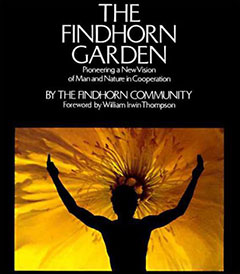 What can I say? It was the 1970’s and I was probably wearing tie-dyed t-shirts and bell bottoms while being captivated by books like The Findhorn Garden and The Secret Life of Plants. Although the two books are somewhat different in nature, they both suggest that there is a spiritual side to plants. I liked the idea of the interconnectedness that proposed because I was already quite fascinated by plants and gardening. What can I say? It was the 1970’s and I was probably wearing tie-dyed t-shirts and bell bottoms while being captivated by books like The Findhorn Garden and The Secret Life of Plants. Although the two books are somewhat different in nature, they both suggest that there is a spiritual side to plants. I liked the idea of the interconnectedness that proposed because I was already quite fascinated by plants and gardening.
That fascination led me to getting a degree in Horticulture from the University of Minnesota. During college, I worked at nurseries, a rose growing greenhouse, and at the University on the Alternative Crops Project and then Apple Breeding program at the Horticultural Research Center in Excelsior, near the Arboretum. Vicki claimed I never had clean socks during that time … although on the upside we had as many apples as we could eat.
I started working with plant data on computers while at the U and, well, as fate would have it, that’s the direction my life took. Vicki had started a “word processing” business and I did part-time computer support for her clients. After a couple of years of that, I came into the business full-time and I guess we’ve never looked back.
Maybe I am looking back a little bit right now because of my circumstances. I’m not supposed to expose myself to potential pathogens while my immune system is being messed with by chemotherapy treatments. That means no yard or garden work! That’s been very frustrating since getting dirty in a garden has been a feature of my life for more than half a century, but I’ve been gifted with some help from a friend (Burke!), who has given up two vacation days to help tidy things up. Thank you!
So now I’m thinking ahead to 2023 when I may get a clean bill of health and be allowed to safely dig in my beloved gardens again and commune with nature. I’d better go look for a tie-dyed shirt to wear. |
|
|
|
| Week Three: |
|
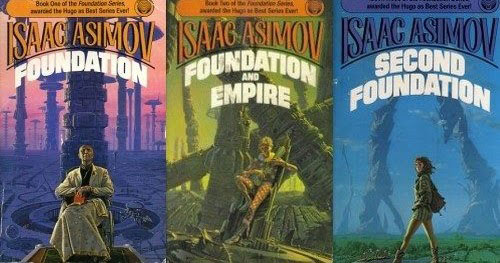 |
|
With the new Foundation television series launching on Apple + TV, this is a good the time to revisit this science fiction classic. The basic premise of the story arises when mathematician Hari Seldon develops a theory of “psychohistory,” a way to model sociology trends mathematically. Using statistical laws of mass action, psychohistory predicts the future of large populations … but, of course, there are a few twists along the way when it comes to protecting human civilization, now spread out among the stars.
When I first read this book many years ago, I wasn’t thinking about Madison Avenue or fascist propaganda … and certainly not our current era of social media and its effects on our population. With that in mind, I think a re-reading of the main trilogy could be interesting. There are also prequels and sequels to the main trilogy—seven books in all.
I remember the story being darkly compelling but with an underlying optimism that the course of human existence would eventually overcome its obstacles. In that regard, these stories may give some comfort for our current times. |
|
|
|
| Week Two: |
|
Reincarnation, Key to Immortality
by Marcia Moore and Mark Douglas, 1968 |
|
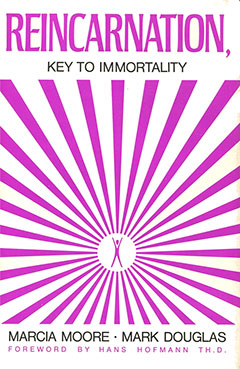 I think I came across this book when I was around 14—purchased it at the B. Dalton’s at Southdale (little did I know that Vicki would be working there a couple of years later). At the time, I found the concept of reincarnation mind-blowing. I remember feeling quite discombobulated as I started the book—it took a while to digest what I was reading. That was the first time the contents of a book changed my thinking and approach to the world. I think I came across this book when I was around 14—purchased it at the B. Dalton’s at Southdale (little did I know that Vicki would be working there a couple of years later). At the time, I found the concept of reincarnation mind-blowing. I remember feeling quite discombobulated as I started the book—it took a while to digest what I was reading. That was the first time the contents of a book changed my thinking and approach to the world.
I’m hesitant to dive into our book archive to find this book again and see if the content still holds up. I don’t want to diminish the nostalgic feeling of discovery that I remember.
When it comes to discovery, you never know when it will hit you. Before my cancer diagnosis, I had taken down the trim around our dining room window to varnish it and then pulled down the old wallpaper. After clearing everything out of the room, the change in the quality of light streaming in from the window propelled me into a flashback of when we first moved into our home. That was a wonderful time of discovery, too.
Although our lives took a detour shortly after that, I’ve tried to maintain a daily connection to that feeling of discovery and adventure. Some adventures come unbidden but “resistance is futile” as Star Trek’s Borg would say and I’ve found it’s best to just grab on and find out what there is to discover. Life always has more secrets to reveal. |
|
|
|
| Week One: |
|
Guns, Germs, and Steel: The Fates of Human Societies
by Jared Diamond |
|
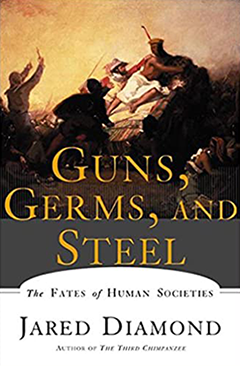 This book is a good antidote to the feeling that things have always been as they currently are. So many discoveries and advancements in human history were only possible considering the events that led up to them. If you pull one discovery out, the rest of the scaffold of history would fall apart ... or would it? This book is a good antidote to the feeling that things have always been as they currently are. So many discoveries and advancements in human history were only possible considering the events that led up to them. If you pull one discovery out, the rest of the scaffold of history would fall apart ... or would it?
This book is a nice nonfiction source of ideas to ask, "What if?" Such as: what if gunpowder was never invented? Would history be radically altered or would humans have discovered a gunpowder analog? |
| |
| |
